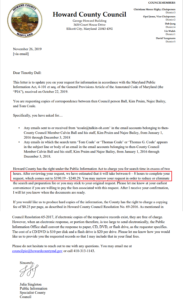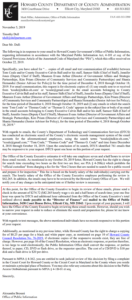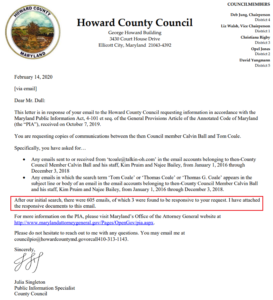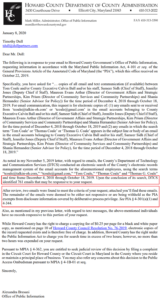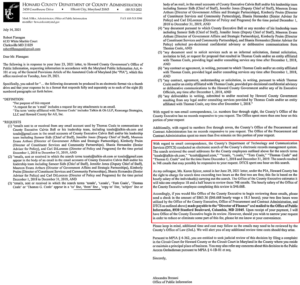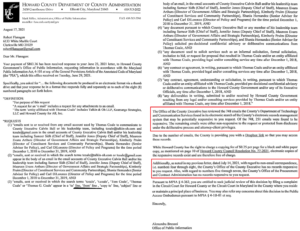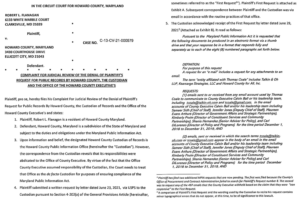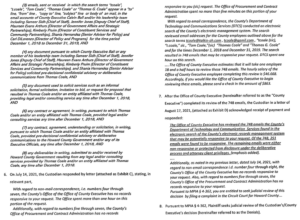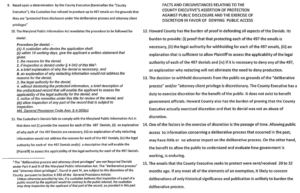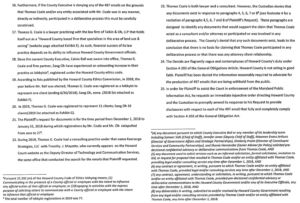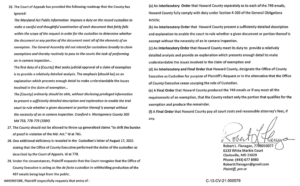Thursday • September 9, 2021
Howard County Executive Calvin Ball Accused of Stonewalling the Public Release of Hundreds of Emails Exchanged with Developer Lobbyist
By Steven Keller
Let’s say that you were interested in obtaining all communications between your County Executive and a local developer lobbyist.
What if the county charged you over $500 for your request and gave you only five emails in return?
What would you think if the County claimed that up to 1361 additional emails between these two parties need to be blocked from public release by “deliberative process privilege” (a law that is intended to protect the government’s decision-making process only while decisions are being made)?
This is exactly what happened to one Howard County resident.
Initial MPIA Requests (Fall 2019)
In October 2019, two Maryland Public Information Act (MPIA) requests were submitted that asked for all communications between Howard County Executive Calvin Ball, his executive staff and a local land use/zoning attorney. Of note, this person had also been a member of Calvin Ball’s 2019 election transition team and went from being a lobbyist to the Howard County government for just one client in 2018 to representing 11 clients in 2019.
The first MPIA request covered the timeframe of January 2016 through December 2018 (during the term of County Councilman Ball). The second request covered the timeframe of December 2018 through October 2019 (during the term of County Executive Ball). The county charged this resident a total of $514 for both of these requests — $240 for the first MPIA request (estimated to be 6-8 hours of work) and $274 for the second request (estimated to be 7.5 hours of work).


